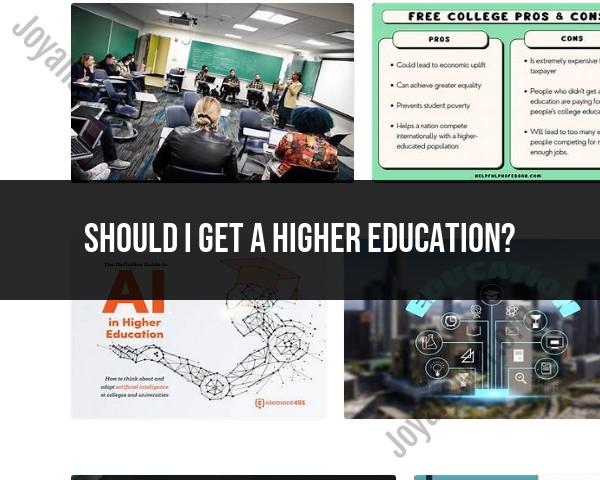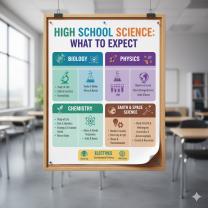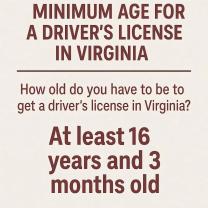Should I get a higher education?
Should You Get a Higher Education? Pros and Considerations
Should I Get a Higher Education?
Deciding whether to pursue higher education is a big choice and depends on your personal goals, financial situation, and career aspirations. Here’s a balanced look at the pros and things to consider:
Pros of Getting Higher Education
Better Job Opportunities
Many careers require a college degree or higher for entry or advancement. Higher education often opens doors to more specialized and higher-paying jobs.Higher Earning Potential
On average, college graduates earn significantly more over their lifetime compared to those without degrees.Skill Development
Beyond knowledge, you gain critical thinking, communication, and problem-solving skills valuable in any field.Networking
College provides connections with professors, peers, and industry professionals that can help your career.Personal Growth
Exposure to new ideas, cultures, and experiences fosters maturity and broadens your perspective.
Considerations Before Pursuing Higher Education
Cost and Debt
Tuition and living expenses can be expensive. Consider scholarships, financial aid, and whether the investment matches your career goals.Career Goals
Some fields prioritize experience, certifications, or vocational training over degrees.Alternatives
Apprenticeships, online courses, bootcamps, or starting work early can be viable paths depending on your industry.Time Commitment
Higher education takes years to complete, so weigh opportunity costs like delayed income.Job Market Trends
Research demand in your chosen field to ensure a degree will improve your chances.
Summary
Getting a higher education can significantly boost your career and personal growth, but it’s not the only path to success. Evaluate your goals, finances, and alternatives carefully before deciding.
Higher education offers numerous significant long-term benefits, impacting career opportunities, lifetime earnings, and personal development, making it a valuable investment for many.
What Are the Long-Term Benefits of Higher Education?
The long-term benefits of higher education extend far beyond just increased earning potential.
Enhanced Career Opportunities and Advancement: A college degree opens doors to a broader array of job opportunities, particularly in specialized fields.
It also provides a clearer pathway for career advancement, promotions, and leadership roles. Increased Earning Potential: Consistently, individuals with higher education degrees earn significantly more over their lifetime than those with only a high school diploma.
Greater Economic Stability and Lower Unemployment: College graduates generally experience lower unemployment rates and greater job security, especially during economic downturns.
They are also less likely to live in poverty. Higher Job Satisfaction: Degree holders often report greater job satisfaction, viewing their work as careers rather than just a means to an income.
Personal Growth and Development: Higher education fosters critical thinking, problem-solving, communication, and teamwork skills.
It encourages intellectual curiosity, broadens perspectives, and exposes individuals to diverse ideas and cultures, leading to increased self-esteem and adaptability. Improved Health Outcomes: Studies suggest that college graduates tend to lead healthier lifestyles and have better access to health insurance through their employment.
Increased Civic Engagement: Those with higher education are more likely to participate in civic activities, such as voting, volunteering, and community organizations, contributing to a more engaged society.
Networking Opportunities: College provides a lifelong network of peers, professors, and mentors who can open doors to future opportunities and collaborations.
How Does Higher Education Impact Career Opportunities?
Higher education profoundly impacts career opportunities by:
Providing Specialized Skills and Knowledge: Many professions, especially in fields like engineering, healthcare, and technology, require specific knowledge and skills cultivated through formal higher education.
Increasing Marketability: A degree signals to employers a certain level of discipline, commitment, and foundational knowledge, making candidates more competitive in the job market.
Opening Doors to Specific Industries/Roles: Certain high-paying and rewarding positions are often inaccessible without a bachelor's or advanced degree.
Fostering Soft Skills: Beyond technical skills, higher education hones crucial "soft skills" like critical thinking, complex problem-solving, effective communication, and collaboration, which are highly valued in the modern workforce.
Resilience in Economic Shifts: College-educated workers tend to fare better during recessions, often experiencing lower unemployment rates compared to those with less education.
Is College Worth the Cost in 2025?
Based on current trends and projections for 2025, college is generally still worth the cost for the majority of students, particularly for a bachelor's degree.
Higher Earnings Premium: In 2025, college graduates are projected to earn, on average, 25%-90% higher earnings than those without a degree.
The projected average starting salary for a bachelor's degree holder in 2025 is around $68,392. Significant Lifetime Earnings: An average bachelor's degree is projected to have a substantial lifetime ROI, with median lifetime earnings for bachelor's degree holders being significantly higher than for high school graduates (e.g., men with bachelor's degrees earn approximately $900,000 more in median lifetime earnings than high school graduates, and women earn about $630,000 more).
Lower Unemployment and Poverty Rates: College graduates consistently have lower unemployment rates and are less likely to live below the poverty line.
Major Matters: The return on investment can vary significantly by major.
Fields like engineering, computer science, and finance tend to show higher ROIs over a lifetime.
Despite concerns about student debt, the aggregate financial and non-financial benefits typically outweigh the costs for most graduates over their careers.
Are There Alternatives to Traditional Higher Education?
Yes, several viable alternatives to traditional four-year college degrees have gained prominence, offering different pathways to skills and career entry:
Trade Schools and Vocational Education: These institutions provide specialized, hands-on training for specific skilled trades (e.g., electricians, welders, HVAC technicians, automotive technicians).
Programs are often shorter and less expensive than traditional colleges and lead directly to employment. Apprenticeships: These programs combine on-the-job training with classroom instruction, allowing individuals to earn a wage while learning a skilled trade.
They can last from one to four years and are common in construction, manufacturing, and some tech fields. Certificate Programs and Coding Bootcamps: Offered by community colleges, universities, or private providers, these intensive, short-term programs focus on acquiring specific, in-demand skills (e.g., web development, data analytics, cybersecurity). They can often be completed in a few months.
Community Colleges: Offer associate degrees and certificate programs that can serve as a direct path to employment or a more affordable stepping stone to a four-year university through transfer agreements.
They provide a wide range of career-focused programs. Self-Directed Online Education (MOOCs, Platforms): Platforms like Coursera, edX, Udemy, and Skillshare offer courses and specializations from reputable institutions and industry experts, allowing individuals to learn at their own pace and often at a lower cost.
Military Service: Offers extensive training in various fields, leadership development, and post-service benefits for education and healthcare.
Gap Year Programs/Internships: Taking a structured gap year or pursuing internships can provide valuable real-world experience, help clarify career interests, and develop professional skills outside of a formal academic setting.
These alternatives can be a faster, more cost-effective way to enter the workforce, particularly for those seeking specific vocational skills or looking to avoid significant student debt.
How Does Higher Education Affect Lifetime Earnings?
Higher education significantly impacts lifetime earnings, creating a substantial earnings premium for degree holders:
Cumulative Earnings Gap: Over an entire working life, individuals with bachelor's degrees earn considerably more than those with only a high school diploma.
For instance, a bachelor's degree holder can expect to earn $1.2 million more in median lifetime earnings compared to a high school graduate. Those with graduate degrees see even higher premiums. Annual Earnings Difference: On an annual basis, median earnings for bachelor's degree holders are often 86% higher than for high school diploma holders.
This gap tends to widen over time as college graduates gain experience and advance in their careers. Reduced Poverty Incidence: The incidence of poverty among bachelor's degree holders is significantly lower—about 3.5 times lower—than for those who hold only high school degrees.
Job Growth Trends: Over the past decade, most net job growth has gone to workers with bachelor's or graduate degrees, indicating a continuing demand for higher-skilled positions.
While initial salaries might not always reflect the full value, the compounded effect of higher wages, greater job security, and more opportunities for advancement means that a college degree typically pays off substantially over a person's working life.













